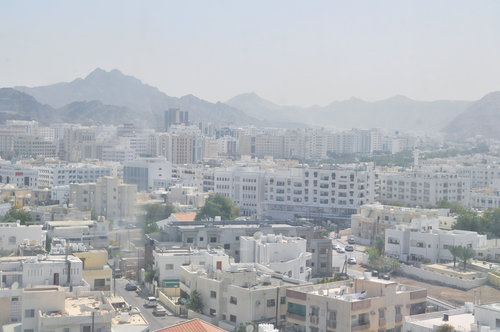+968 72444424
-
Service
- Real Estate Service
- Handyman Services
- Home Service
- Appliance Repair
Real estate in Oman recovering with accelerated growth

MUSCAT - The last two years have been challenging for Oman’s economy, which is still working its way through an exacting period. The burden of that downward spiral of the economy was considerably felt by the real estate market, resulting in a reduction in overall demand.
However, the year 2018 has begun on a positive note and property consultants in the country also forecast a
The National Centre for Statistics and Information (NCSI) data for the first quarter of 2018 showed a robust growth compared to last year.
As an indication of the market trend, the total value of property transactions in the January-March period this year increased by 6.8
Buoyed by Oxford Economics’ estimate that GDP growth is expected to surge by 5.2 per cent in 2018; the strongest rate of expansion since 2015, acceleration of further economic growth is forecast to be fuelled to a significant degree by the introduction of natural gas production from the Khazzan gas field as well opening of the new Muscat International Airport, according to Cluttons Muscat Winter 2017-18 Property Market Outlook.
Ian Gladwin, head of Cluttons Oman, said, “Although the real estate market has been impacted by a reduction in overall demand, there remain pockets of activity and clear opportunities in both the residential and commercial sectors.”
M Sudhakar Reddy, CEO, Al Habib & Co, which is the largest real estate products and services company in Oman, said that 2018 will see things change. “We are expecting 2018 to be a much better year than 2017 as consumer confidence is returning to the market. Now people have begun spending again and are ready to invest also. Things are improving. “The government has been prudently managing its finances by borrowing when oil prices are low and building reserves when oil prices are high. The government has managed the sharp drop in oil prices very well and since oil prices have improved we can expect a better year ahead.”
A steep correction in rentals has taken place in some areas in the last couple of years. Would the trend continue in 2018? Reddy replied, “In prime areas such as Qurm, Ghubra
He added that despite the fact that many offices from CBD and MBD areas have shifted to other locations, areas such as CBD and Ruwi are still very popular among expatriates. “Rents haven’t dropped here much compared to Amerat and Ma’abela. Rents have fallen in the outlying areas but the main reason is not depressed economic sentiments, rather it is higher supply compared to weaker demand. I see a decline in rentals but there could be some
Another major positive for
According to the Cluttons report, development of Duqm as an industrial port city has tremendous potential and continues to gather pace. The port is already operational with Phase 1 expected to be fully completed in 2019. In addition, the South Korean government has recently announced plans to assist with developing Duqm into a ‘smart city’.
Ten sub-usufruct agreements have now been signed between Oman Wanfang and Chinese companies for projects worth a total of US$3.2bn within the 11.7sq km China-Oman Industrial Park, the report stated.
Oman is also working to reduce the country’s reliance on oil and diversify the economy, for which the government has opened the real estate sector to investment from expatriates in Integrated Tourism Complexes (ITC). The ITCs are freehold mixed-use developments featuring different asset classes including residential, hospitality, retail, leisure
The government is developing more than 5,000 homes in collaboration with private developers in five ITC projects namely, Diyar Ras al Hadd Resort,
Source: https://www.muscatdaily.com/Archive/Business/Real-estate-emerges-from-lacklustre-2017-with-accelerated-growth-5a4j